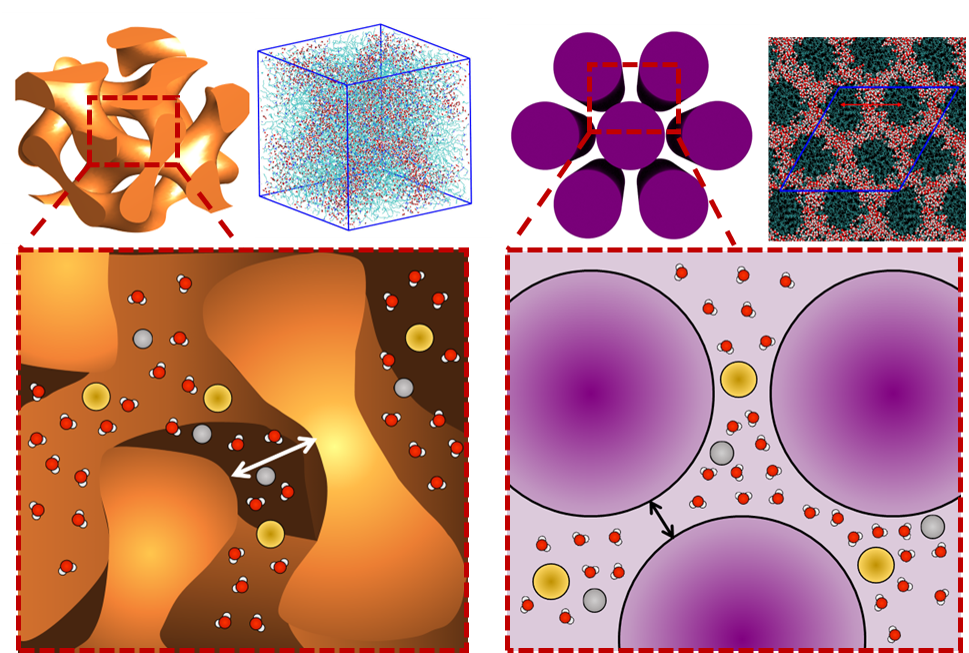
Thermally-driven chemical separations account for a staggering >10% of U.S. power consumption alone, contributing >100 M annual metric tons of CO2 into the atmosphere. Membrane separations have the potential to greatly reduce this energetic burden and increase process tunability, though large gaps exist for designing highly selective membranes without sacrificing permeability.
Our lab studies a novel class of nanoporous membranes, fabricated from self assembled materials, including liquid crystalline surfactant mesophases and block copolymers. Polymerization of the surfactants results in a permanent nanoscale pore space with wide tunability in both nanoscale dimensions and surface chemistry. We use a combination of materials characterization, soft matter physics, and macroscopic filtration measurements to elucidate the fundamental interplay between nanoscale confinement, surface chemistry, and molecular transport. These insights suggest new avenues to enhance key chemical processes, including desalination, contaminant filtration, and organic solvent separations.
People

Dong-Gue Kang
donggue@seas.upenn.edu
Postdoctoral researcher
Supramolecular Chemistry, Reactive Mesogens, Solid Electrolytes
Subgroups: Membrane Separations

Youngjoo Lee
lee34@seas.upenn.edu
Postdoctoral researcher
Nanostructured membranes, Ion separations, Transport phenomena
Subgroups: Membrane separations

Ahmad Ali
ahmad0@seas.upenn.edu
PhD student
Desalination, Ion Transport, Self-Assembly
Subgroups: Membrane Separations

Alex Junkyu Hwang
junkyuhw@seas.upenn.edu
PhD student
Membranes, Self-Assembly, Transport Properties
Subgroups: Membrane Separations

Christopher Johnson
chriswj@seas.upenn.edu
PhD student
Ion Transport, Nanostructure, Material Properties
Subgroups: Membrane Separations, Autonomous Experimentation

Jack Granite
granite@seas.upenn.edu
PhD student
Self-assembled membranes, separations involving organic media
Subgroups: Membrane Separations

Schidza Cime
schidza@seas.upenn.edu
PhD student
Ion-selective membranes, Material characterization
Subgroups: Membrane Separations
